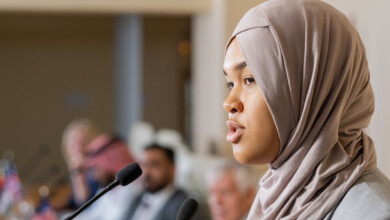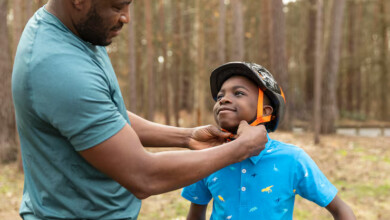Beyond Inheritance: Redefining parental impact in a challenging economy

Janat Yahaya Naggolola – Parenting Coach
Assalam alaykum warahmatullahi wabarakatuh
As the cost of living continues to soar globally, a growing number of young adults find themselves struggling financially despite higher education, ambition, and hard work.
This trend has triggered a quiet emotional struggle among many parents: guilt over not being able to offer tangible financial support or a more secure economic foundation for their children.
This issue has become a focal point of discussion in professional parenting forums, especially among Muslim families striving to balance spiritual values with modern expectations.
“Did I prepare my child adequately for financial independence?”
“Should I have left behind more tangible assets?”
“Have I failed by not being able to assist financially now?”
These are questions parents, like Fatima, a retired healthcare professional and single mother ask themselves.
Fatima raised three children with discipline and faith, only to later witness her son juggling multiple jobs at age 29. Her reflections are telling:
“I wish I had left him a business or a property. But all I gave were values, faith, and structure. Was it enough?”
Our professionals argue that Fatima’s legacy may be greater than she realizes. They emphasize the importance of reframing parenting success beyond financial provision.
Before parents rush to “fix” their children’s financial struggles, we encourage them to internalize five foundational insights:
- Struggle Is not a measure of parental failure: Adult hardships often stem from systemic issues, not parenting errors.
- You’ve already given more than you realize: Values, integrity, and emotional resilience are lifelong assets.
- Support is multifaceted: Emotional presence, spiritual mentorship, and wisdom are invaluable.
- Faith teaches that struggle is a path to growth: Islam teaches that trials strengthen character and deepen reliance on Allah.
- Letting go of guilt unlocks effective parenting: Releasing guilt helps parents act from wisdom rather than worry.
Strategic reframing: From guilt to intentional influence
We recommend five practical strategies for parents looking to remain impactful during this phase of their children’s lives:
- Redefining the metrics of parental success: Success must encompass emotional intelligence, values, and resilience, not just assets.
- Recognizing the value of non-material support: Life mentorship, presence, and consistent encouragement leave a lasting mark.
- Avoiding the trap of overcompensation: Overgiving financially may create dependency. Instead, focus on empowerment.
- Ongoing capacity building through Islamic principles: Teach Tawakkul (trust in Allah), halal earnings, and financial discipline rooted in barakah.
- Preserving the parent-child relationship with faith-based foundations: Foster sabr (patience), make du‘a (supplication), and share stories of prophetic resilience.
Reframing the mindset
“If my child never experienced adversity, how would they develop inner strength, trust in Allah’s wisdom, or appreciation for ease?”
This reflection invites parents to see financial struggle as part of a broader spiritual and character-building journey.
At Mynd Your Child, we offer;
- Leadership coaching,
- Emotional wellness and soft skills development,
- Strategic guidance for parents transitioning from providers to life mentors.
We ensure that both generations grow in purpose, resilience, and shared faith.
In an era where economic uncertainty is the norm, parents are invited to embrace a broader, deeper view of their role. Parenting, after all, does not stop when children become adults, it evolves.
“You need not carry the burden of guilt. Your greatest legacy is not what you leave for your children, but what you leave in them.”
We often affirm:
Children who inherit wisdom, faith, and inner discipline are far better prepared for life than those who inherit wealth without the tools to sustain it.






